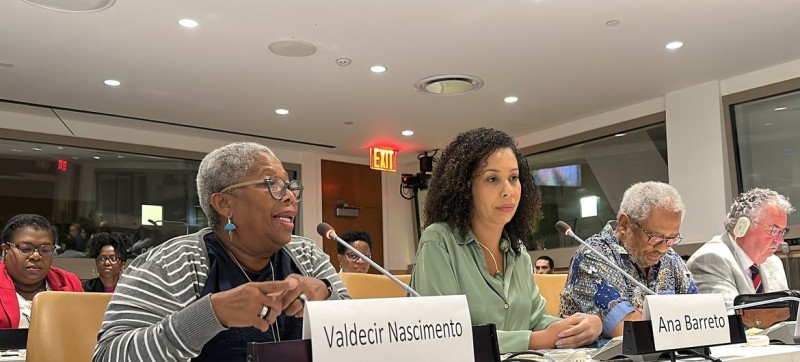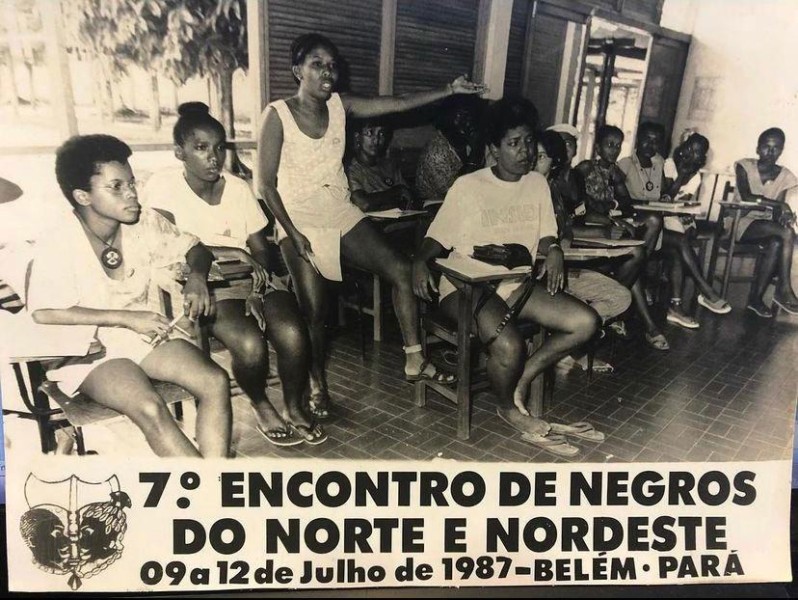© Odara Institute Activist Valdecir Nascimento.
Organized under the theme, Realizing the dream: A UN declaration on the promotion, protection and full respect of the human rights of people of African descent, the Permanent Forum heard from experts and leaders from around the world, including Ms. Nascimento, explaining the challenges they have faced, and the dreams they have for the future.
Her dream is for Black women to “break away from the madness” and “have the power and possibility to decide”.

UN News/ Pauline Batista Activist Valdecir Nascimento at the second session of the Permanent Forum on People of African Descent.
“My whole life has been dedicated to the racial struggle. My encounter with the Black movement was a turning point for me. I was 19 or 20 years old when I found the movement.
I went looking for a barber shop to cut all my hair because my straight hair no longer fit me. I could not continue with those aesthetics after what the movement told me.
My whole life is attached to this relationship: the existence of the Black movement, as a subject.
‘Born fighting’
I was born in the stilt houses of Alagados in Bahia during the first stilt house occupation in Latin America. What brought me to the global level was essentially being born in that place, and knowing that you are born fighting.
If the real colonized Brazil was born in the northeast, we experienced processes, including the liberation and autonomy struggle, much earlier on than in the southeast.
When the resources come and if resources are limited, they get taken away. Resources are not always distributed based on regional struggles. Resources also get distributed according to narratives folks want to hear. And I used to say, and I used to talk to Nilma Mendes, who is a colleague from Belém do Pará, from those days in the 1980s.
She used to ask me, ‘Val, how many enemies do you make a day?’ I said to her, with my eyes filled with tears, that where I came from, I learned that we can’t just let anyone walk all over us.
Empowering Black Women: Valdecir Nascimento’s Vision for Equality
‘This is my dream’
Part of my dreams for Black women of today, still have not come true the way I would like, but they slowly are.
I want Black women of today to break away from this madness that we are all goddesses, and we need to come up with all solutions for the world.
We are not all goddesses and don’t need to come up with all solutions for the world. We can enjoy life, and life can be the simplest thing in the world, but I want us to have the power and possibility to decide.
This is my dream.”

© Odara Institute Poster for a meeting on Black rights in Brazil in 1987.

